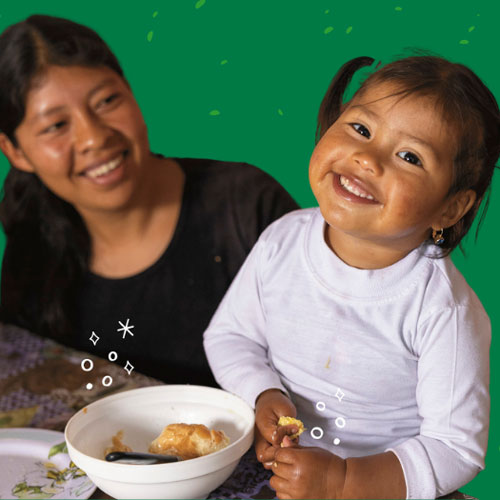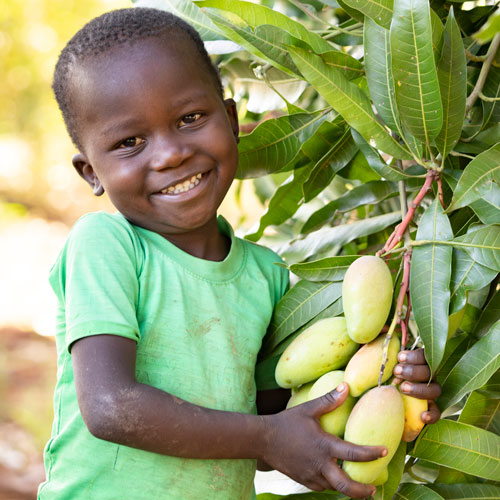- Partnership set to grow rugby for development and gender equality initiatives in Oceania and beyond
- ChildFund become first ever charity partner for the women’s edition of a Rugby World Cup
- Rugby fans will have the opportunity to opt in to donate when purchasing match day tickets
- Appointment builds on record-breaking success of previous partnership for Rugby World Cup 2019 in Japan where £2 million was pledged by rugby fans to support ChildFund’s rugby for development programmes and Typhoon Hagibis disaster relief
- Rugby World Cup 2021 hosted by New Zealand set to take place 8 October – 12 November 2022 in Auckland and Whangārei
World Rugby has announced the appointment of international development agency ChildFund as the principal charity partner for Rugby World Cup 2021, playing in 2022, a first in the history of the premier women’s 15s event.
Rugby fans will have the opportunity to engage with and support the work of ChildFund Rugby, ChildFund’s dedicated rugby for development unit, via an opt in mechanism to donate when purchasing match day tickets, with funds raised through the partnership supporting the expansion of rugby for development programmes in Oceania. With a focus on gender equality initiatives, ChildFund works with partners, including Oceania Rugby, to provide vulnerable girls and women with opportunities to learn skills to overcome challenges and be active leaders in their communities.
World Rugby Chief Executive Officer Alan Gilpin said: “We are delighted to be extending our association with ChildFund, this time as principal charity partner for Rugby World Cup 2021. The tournament will showcase rugby’s unstoppable women as they compete at the highest level.
“Importantly, it will also generate an incredible legacy by supporting a new generation of female players and leaders in Pacific Island nations through ChildFund’s significant contribution to rugby for development programmes in the Oceania region.”
Through a ground-breaking partnership at RWC 2019, a record-breaking £2 million was pledged by rugby fans globally to ChildFund, providing more than 25,000 children from disadvantaged communities in Asia with the opportunity to take part in ChildFund’s Pass It Back programme across Asia, teaching life skills through rugby with the support of Asia Rugby.
Funds raised were also used to support local communities in Japan with the rebuilding effort following the devastation caused by Typhoon Hagibis during the tournament.
ChildFund Rugby’s development programmes not only promote the right to play in communities where children have little or no access to organised sport, but provide important learning opportunities around leadership, problem-solving, gender equality, relationships, conflict-resolution, and planning for the future.
With a strong focus on gender equality, a strategic objective shared by World Rugby, over half of all participants and rugby leadership roles are female, challenging gender stereotypes.
ChildFund Alliance Chair Simon Whyte said: “ChildFund is excited to again be partnering with World Rugby to change children’s lives through sport.
“Over 31,000 children and young people have benefitted from their involvement in ChildFund’s rugby for Development programs, which are highly successful in providing critical learning opportunities for children facing significant challenges linked to poverty and inequality.
“As part of this, 6,000 children have participated in Reconnect, a COVID-19 early response initiative developed by ChildFund which supports positive responses among young people to the challenges of the pandemic.
“ChildFund’s rugby for development programs also support global efforts to achieve gender equality, reduce inequality, and end gender-based violence, reflecting targets within the UN Sustainable Development Goals.”
ChildFund Ambassadors Honey Hireme-Smiler and Emily Chancellor, former and current New Zealand and Australian players, will be on opposing sides when the tournament commences. However, they are on the same team in recognising the importance of organised sport in girls’ and boys’ lives, particularly in disadvantaged communities.
Hireme-Smiler, former New Zealand Black Fern, said: “I am extremely passionate about supporting younger girls as this was how we were raised within our whanau (family). The ways in which ChildFund makes an impact on the lives of vulnerable children – whether through health and wellbeing, education, or sport – is so inspiring.
Wallaroos player Emily Chancellor, who shared her rugby skills with children in Laos in 2019, added: ChildFund Rugby’s development programmes are incredibly important for young people in developing communities, because they combine education with team sport. Learning through play is a really valuable way to build confidence and resilience.
“I’m also proud to support an initiative which has such a strong focus on gender equality and is creating an equal playing field for girls and boys alike.”
Funds raised during the tournament will allow ChildFund Rugby to expand its contribution to rugby for development programmes for children and young people in Oceania, support female leadership initiatives, and support the creation of strong rugby women’s networks around the globe.
ChildFund Australia CEO Margaret Sheehan said: “Well designed sport for development programs are a proven way to achieve positive social outcomes, such as building resilience, youth leadership and gender equity. We are proud and excited to be part of this major global initiative to improve the lives of children and young people as communities recover from the impacts of COVID-19.”
For more information, visit www.childfundrugby.org








